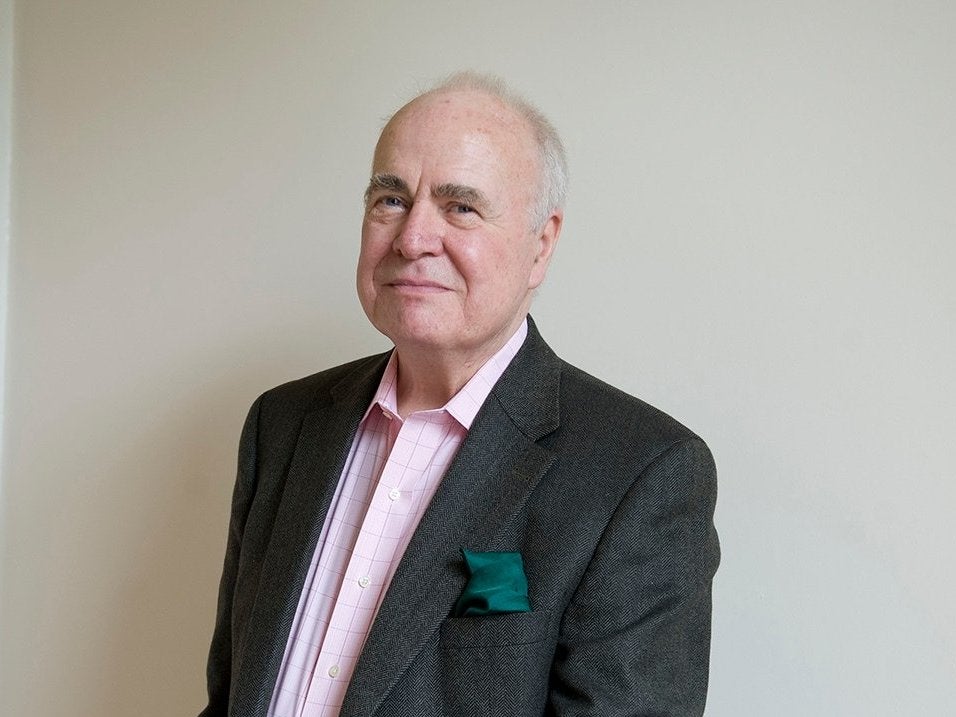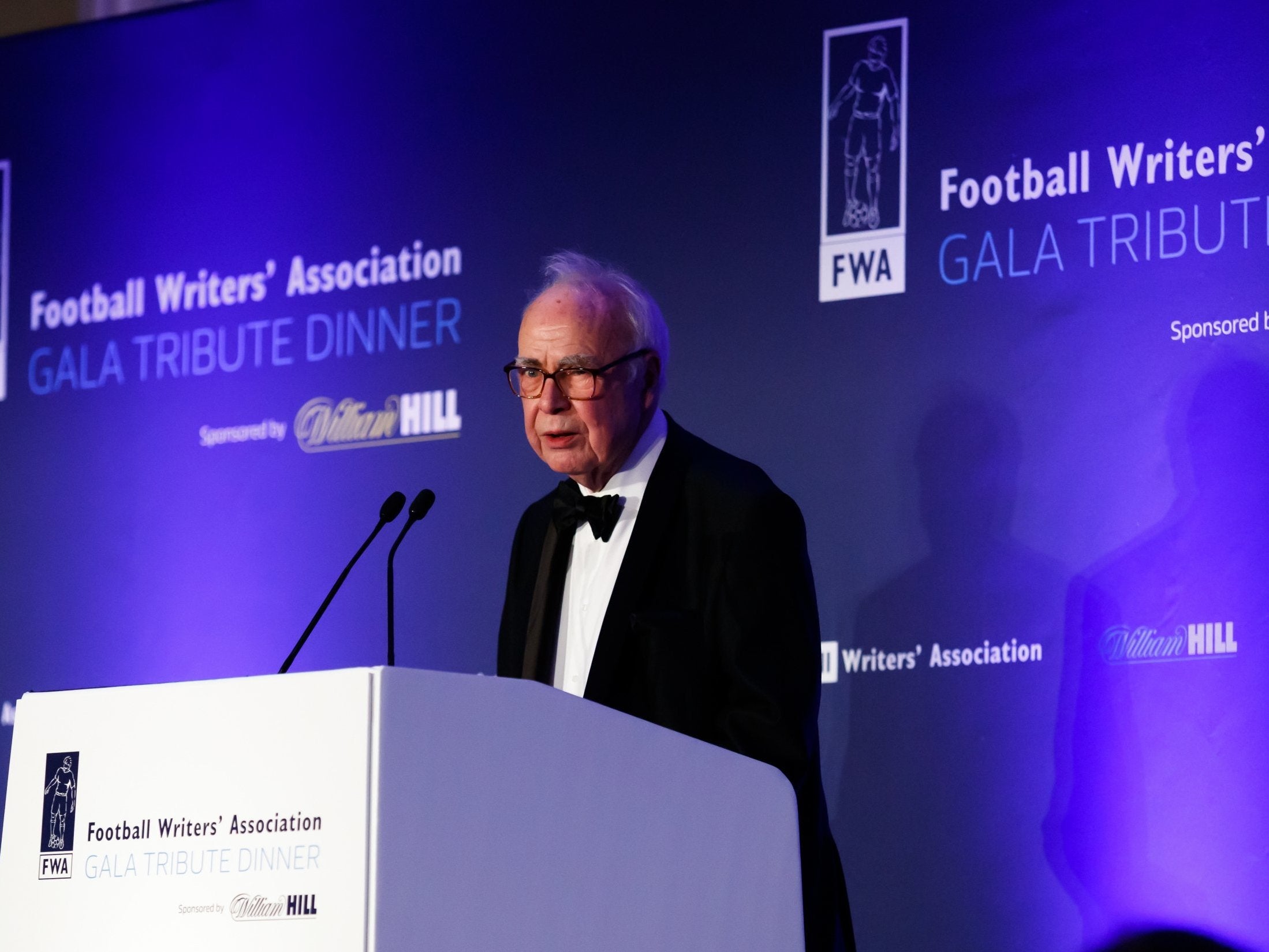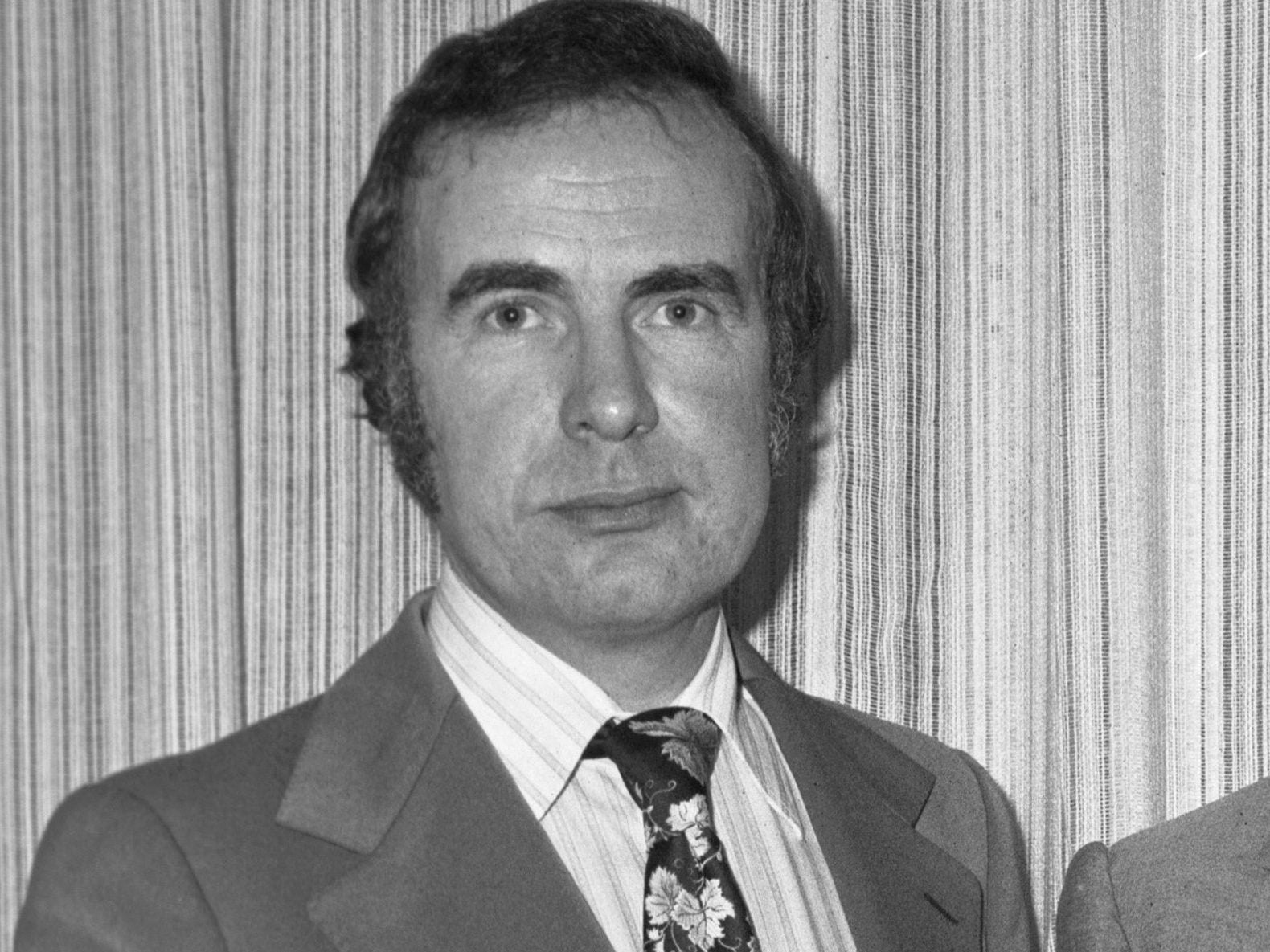Hugh McIlvanney: A trailblazer whose dazzling imagery made him one of the greatest sports journalists
Tributes have poured in for the former Observer and Sunday Times writer, who befriended George Best and landed an exclusive interview with Muhammad Ali after the ‘Rumble in the Jungle’

Hugh McIlvanney was a giant of British journalism, a sports writer whose vivid, elegant and painstakingly crafted prose elevated him to the level attained by some of those he interviewed, such as Muhammad Ali and Pele, in their chosen fields.
McIlvanney, who has died aged 84 after suffering from cancer, remains the only sports journalist to be named Journalist of the Year in the British Press Awards. Patrick Collins, president of the Sports Journalists’ Association, said on McIlvanney’s retirement in 2016: “To call him a great writer is like describing Muhammad Ali as a useful heavyweight.”
As well as being awarded the OBE in 1996 for services to journalism, McIlvanney was voted Sports Journalist of the Year seven times; inducted into the Press Gazette Hall of Fame for exceptional practitioners of his trade; to the International Boxing Hall of Fame, and to the National Football Museum equivalent. As the first from the profession to be admitted to the latter, he said he was proud to represent “the unruly brotherhood of press-box scribblers”.
No one who read McIlvanney at the peak of his powers – which was arguably with The Observer in the 1970s and 1980s rather than his subsequent sojourn with the Sunday Times – would buy that description.
“Scribbler” is far too reductive a term for the wordsmith who wrote in 1980 of a Welsh bantamweight boxer who died after seven weeks in a coma having been knocked out in a world title fight: “It was boxing that gave Johnny Owen his one positive means of self-expression. It is his tragedy that he found himself articulate in such a dangerous language.”

Boxing also brought him his biggest scoop, affirming his sense of being a reporter as much as a phrase-maker. In 1974, after the “Rumble in the Jungle” between Ali and George Foreman in what was then Zaire, McIlvanney surmised that the victorious Ali would not be able to sleep after his victory. He drove 40 miles to his base and was granted an audience in which the former Louisville Lip provided a typically colourful breakdown of the tactics he had employed.
Hugh McIlvanney was born in Kilmarnock, Ayrshire, and spent the first two years of his life in a cramped tenement flat with his parents and older brother and sister before moving to a council estate. His father, a former coal miner, was a teetotaller whom he remembered as “vehemently socialist” and a lapsed Catholic who sent his children to a Protestant primary school.
McIlvanney did not go to university on leaving school as his younger brother, the late novelist William, did. However, he impressed the editor of his local paper, the Kilmarnock Standard, when he finished second in a debating contest. His first job found him covering council meetings, court cases and garden fetes, though not sport. “Reporting is at the heart of our business,” he said. “I learned a lot about it at the Standard.”
After landing a news reporter’s job with the Scottish Daily Express, McIlvanney progressed to train crashes and murder trials. Another move, to The Scotsman, saw him switch to sport in 1960. He was initially reluctant, concerned he might end up “covering Rangers and Celtic for the rest of my days”. Then editor Alastair Dunnett lent him a book on boxing, The Sweet Science by AJ Liebling, in the hope of convincing him that sports writing could be a vehicle for his obvious flair and did not simply equate to hyperbole, chronology and quotes.
The Observer brought him to London in 1963. He stayed for 30 years, interrupted when he took a news and features role in 1972-73 with the Daily Express where his interviewees included Ugandan dictator Idi Amin. On his return he flourished under a sports editor with astute man-management skills, the Welshman Peter Corrigan, under whom he concentrated on his principal sporting passions: boxing, football and horse-racing. Corrigan understood that McIlvanney’s genius could not be separated from his self-confessed neuroses and insecurities, manifested in a tortuous writing process in which every word and punctuation mark was weighed carefully.

One story about his perfectionism concerned the day he was travelling on the last train to London after covering a match at Liverpool. Colleagues assured him that a shot that clipped the bar did so because the goalkeeper got his fingertips to the ball. He had not spotted the intervention. Mortified, he alighted at Crewe and called the sub-editors to correct his copy (this was before mobile phones and laptops). The train promptly departed and he spent the night in a hotel.
Sports editors would forgive any amount of preciousness or pedantry to have McIlvanney’s dazzling imagery in their pages. Of Bobby Moore he wrote: “He could play tag with a fox and never get caught.” Joe Bugner possessed “the physique of a Greek statue but with fewer moves”. And he saw George Best, with whom he became friends – much as he forged working relationships with the great Scottish managers Jock Stein, Sir Matt Busby, Bill Shankly and Sir Alex Ferguson – as having “feet as sensitive as a pick-pocket’s hands”.
He joined the Sunday Times in 1993, going on to write a weekly column titled “Voice of Sport”, although some admirers questioned whether the format suited him as well as feature-writing or reporting. Whether at the Olympic Games and World Cup finals or Old Trafford and Stamford Bridge, he cut a dash with his smart suits, adorned by handkerchiefs protruding from the breast pocket, and copious Havana cigars. His temperament could be volatile, and he was certainly no teetotaller, but he also had a gift for comradeship and laughter.
When he ended his long relationship with the Sunday broadsheets, aged 82, McIlvanney wrote that his retirement was “about living, not waiting for when the towel will eventually flutter into the ring”. He is survived by his wife Caroline North, a literary editor, and by a son, Conn, and daughter, Elizabeth, both of whom are from the first of his three marriages, to Sarah Kenmuir, whom he met at a dance in Kilmarnock.
Hugh Montgomery McIlvanney, journalist, born 2 February 1934, died 24 January 2019
Join our commenting forum
Join thought-provoking conversations, follow other Independent readers and see their replies
Comments